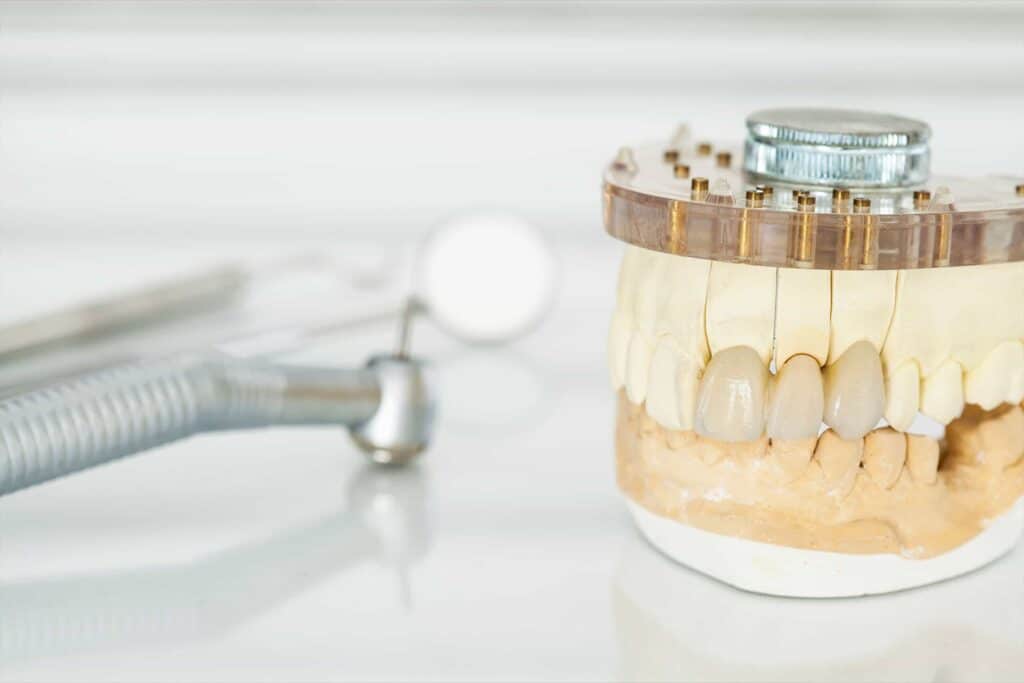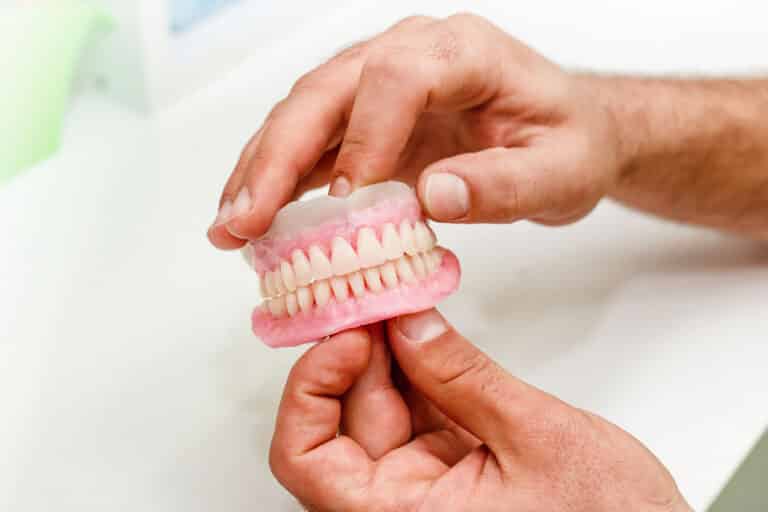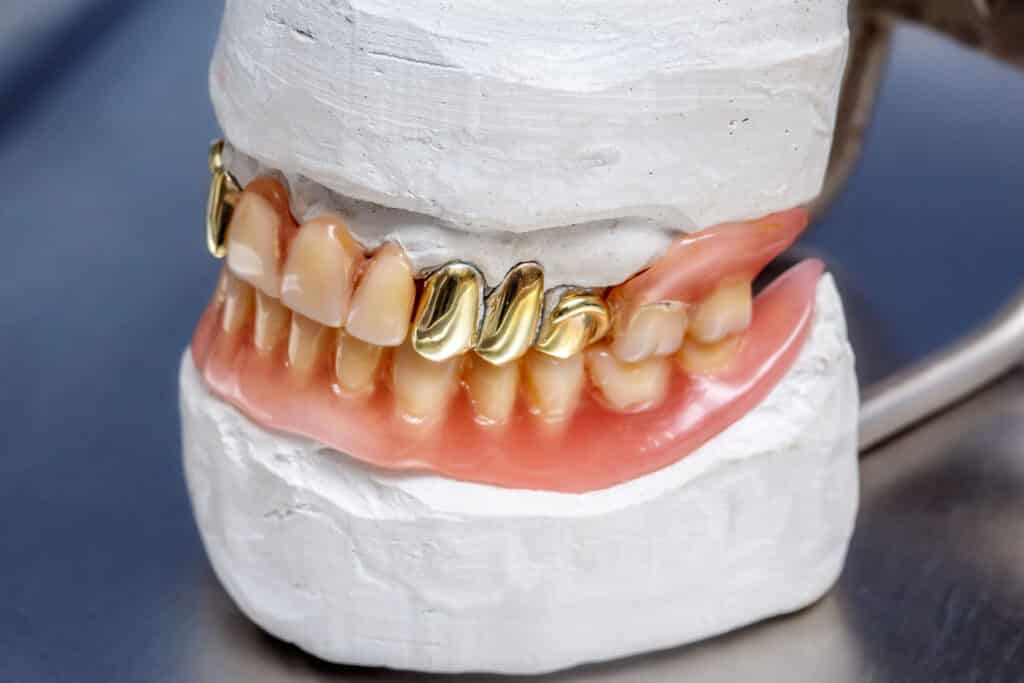The topic of restoring tooth enamel is a common one in the dentists’ chair. Many patients wonder if it can be replaced. In short, if tooth enamel has been damaged enough, then it cannot be brought back to its original state.
To a certain extent, tooth enamel can be remineralized by using the appropriate toothpastes and mouthwashes. These products cannot completely rebuild your teeth, but they can help repair minor damage caused from acid erosion.
What is Tooth Enamel?
The thin, highly mineralized, outer layer of a tooth is what is referred to as tooth enamel. Tooth enamel covers the crown of your tooth, or the part of your tooth that you can see on the outside of your gums. Essentially, enamel is a hard, transparent layer of added protection specifically designed to help prevent damage to your teeth.
What are the Different Layers of the Teeth?
Many people think that teeth are composed of only one hard layer with enamel covering it as a protective shell. In reality, they are made up of three different layers.
The Enamel
Composed primarily of calcium-phosphate minerals, the enamel is the visible outer layer of your tooth. Though it’s transparent, it’s extremely hard. Enamel is the hardest substance in the human body, capable of handling biting and chewing every day. Although extremely robust, it is still susceptible to trauma and disease over time.
Substances like carbohydrate rich foods and sugar can produce acid within the mouth that destroys your enamel. When acids eat away enough at your teeth, they’ll get past the enamel to the second layer of your teeth and cause decay, or a cavity.
The Dentin
The second layer of the teeth is right under the enamel and it’s called the dentin. The dentin is naturally yellow in color, and although robust, it’s not as hard as enamel. If decay reaches this layer, it will only get bigger and eventually it will reach the last layer.
The Pulp
The pulp is in the middle of the tooth, containing the neurovascular bundle – the nerves and blood supply. Once tooth decay makes its way through the enamel and the dentin and into the pulp, there is little choice left but to perform a root canal or tooth extraction.
What Causes Damage to Tooth Enamel?
Tooth erosion and damage to your tooth enamel most commonly happens due to the presence of acid as a by-product of bacterial metabolism. Basically the bacteria in your mouth eats the foods or drinks and results in acid. That acid then eats away at the enamel of your teeth. Damage to the enamel can come from the following:
- Consuming too many soft drinks and soda which contain sugar and is often acidic
- Eating a lot of sugary or highly processed foods, which the bacteria in your mouth thrives on
- Fruit drinks and some types of fruit juice
- Sour foods (lemons, limes) and sour candy (Sour Patch Kids, Lemonheads)
- Acid reflux, as it brings stomach acid up from the stomach and into the mouth
- Aggressive tooth brushing
- Excessive teeth grinding, also known as bruxism
The most common of these to cause damage is from a combination of poor diet and inadequate hygiene habits. There are other factors as well that can indirectly cause more cavities such as dry mouth or xerostomia.
What Habits Damage Tooth Enamel the Most?
The damage certain habits cause to your tooth enamel depends entirely on your lifestyle and how much you partake in said habits. However, there are a few habits that are more damaging to tooth enamel, regardless of how often you indulge.
- Eating sugary, sticky treats
- Routinely consuming acidic and sugary beverages
- Habitually chewing on ice or other non food items such as pens, pencils, or fingernails
- Aggressively brushing your teeth and gums
The good news is it’s simple, but not necessarily easy, to switch up these habits for healthy teeth habits. It takes a little habit-building effort, but it will be worth it in the long run! You can read about how to properly clean your mouth here.
Additionally the frequency of eating can also increase the acid to the teeth. Frequent eating gives more time for the bacteria to metabolize food, which produces more acid during the day. Eating less frequently can lead to less cavities.
Does Tooth Enamel Grow Back?
Tooth enamel does not grow back. Even though it is the hardest tissue in the human body, it is not a living tissue, so it cannot be regenerated. However, with a bit of guidance from your dentist and the help of remineralizing products, you can begin to repair weakened enamel. While it will not grow back, the enamel you have can move to a stronger state.
What Does Remineralization Mean?
Tooth remineralization is the process of replacing the minerals lost during acid erosion. Imagine a slow trickle of water washing away dirt as enamel erosion and the remineralization as the replacement of the dirt that was washed away. Your body will naturally take minerals from your saliva and redeposit them into your enamel, consistently working to keep your teeth healthy. Other products, both prescription and over the counter also remineralize teeth to keep them healthy.
It’s important that you do what you can to not work against the process. Clean your teeth regularly, and receive consistent dental care. As long as your body assists your teeth in remineralizing more than demineralizing, you’re on the right track, headed away from cavities and potential tooth decay.
How Can I Restore Tooth Enamel?
You can strengthen your enamel through practicing good dental hygiene and regularly scheduled dental appointments. To keep your teeth healthy and your enamel in outstanding condition, you’ll want to practice the following:
- Floss and brush your teeth twice daily
- Yearly dental cleanings and checkups
- Get your teeth fixed as needed
- Talk to your dentist about fluoride treatments
Choosing the right toothpaste is an essential step in your journey to teeth remineralization. Ask your dentist which tooth care products are right for you. Chances are, you’ll be advised to use a toothpaste with fluoride.
Keeping your diet in check is an important component of healthy teeth and gums. Limit sugary drinks and snacks, leaning toward fresh, whole foods and grains as well as try to limit the frequency of snacks.
Can I Restore Tooth Enamel Naturally?
Your body will naturally restore enamel you’ve lost over the course of your life by consistent remineralization. Cavities will form when the rate of damage outpaces the repair. However, there are natural options such as xylitol that, while helping to stop cavities, doesn’t repair enamel.
Xylitol is a natural sweetener found in plants that starves the bacteria in your mouth while improving saliva flow. Less bacterial growth means less plaque and erosion. Keep in mind that some studies have shown that in order to have a tangible effect, xylitol needs to be consumed a few times a day. You can find xylitol in many forms such as in candies, some peanut butter, and sugar free chewing gum.
Remember, xylitol is toxic to dogs, so keep it far away from pets!
Staying on Top of Tooth Health
The best way to prevent extreme enamel loss and tooth decay is to visit your dentist regularly and take care of your mouth and body. Oral hygiene and the food that you eat to fuel your body can work wonders for remineralization and preventing the loss of precious enamel. If you take care of your teeth, they will take care of you!





